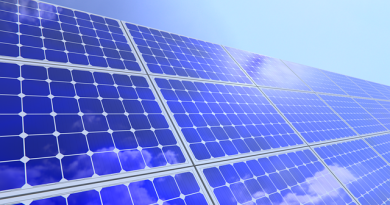How Does Solar Panel Billing Work?
As solar panels become more popular, understanding how they affect your electricity bill is crucial. This guide provides an in-depth explanation of how solar panels generate electricity credits, the concept of net metering, different billing structures, and the factors that affect solar panel billing. We’ll also discuss potential challenges in the billing process and tips for maximizing your electricity credits.
Table of Contents
- 1 How Solar Panels Generate Electricity Credits
- 1.1 The Concept of Net Metering and Its Benefits
- 1.2 Different Billing Structures
- 1.3 Factors Affecting Solar Panel Electricity Credits
- 1.4 Challenges and Limitations of Net Metering
- 1.5 Solar Panel Billing and Grid Parity
- 1.6 The Future of Solar Panel Billing and Net Metering
- 1.7 Tips for Maximizing Solar Panel Electricity Credits
- 1.8 Understanding Your Electricity Bill After Installing Solar Panels
- 1.9 The Impact of Battery Storage on Solar Panel Billing
- 1.10 Key Factors in Solar Panel Billing and Net Metering
- 1.11 Conclusion
- 1.12 FAQs
How Solar Panels Generate Electricity Credits
Solar panels generate electricity by converting sunlight into direct current (DC) electricity through the
photovoltaic effect. This electricity is then converted into alternating current (AC) electricity by an inverter for use in your home. When your solar panels produce more electricity than you use, the excess electricity is sent back to the grid, and you earn electricity credits.
| Process | Explanation |
|---|---|
| Electricity Generation | Solar panels convert sunlight into electricity. |
| Inverter Conversion | DC electricity from panels is converted to AC electricity. |
| Excess Electricity | Surplus electricity is sent to the grid. |
| Electricity Credits | Credits are earned for the excess electricity sent to the grid. |
The Concept of Net Metering and Its Benefits
Net metering is a billing arrangement that allows solar panel owners to receive credits for the excess electricity they generate and send back to the grid. These credits can be used to offset the electricity you consume from the grid when your solar panels are not producing enough power, such as at night or on cloudy days.
| Benefit | Explanation |
|---|---|
| Bill Reduction | Electricity credits reduce the amount you owe on your utility bill. |
| Increased Savings | Net metering maximizes the financial return on your solar panel investment. |
Different Billing Structures
Solar panel billing can vary depending on the utility company and the billing structure in place. The most common billing structures include:
- Time-of-Use (TOU): Electricity rates vary depending on the time of day, with higher rates during peak hours and lower rates during off-peak hours.
- Tiered Rates: The cost of electricity increases as more energy is consumed, with different rates for different usage levels.
- Flat Rate: A single rate is charged for electricity regardless of the time of use or amount consumed.
| Billing Structure | Impact on Solar Panel Owners |
|---|---|
| Time-of-Use (TOU) | Solar panels can help offset higher electricity costs during peak hours. |
| Tiered Rates | Solar panels reduce the amount of electricity needed from the grid, potentially keeping you in a lower tier. |
| Flat Rate | Consistent savings regardless of the time of electricity use. |
Factors Affecting Solar Panel Electricity Credits
Several factors can affect the amount of electricity credits you receive from your solar panels, including:
1. Solar Panel Output: The amount of electricity your panels produce depends on factors like location, weather, and panel efficiency.
2. Energy Consumption: Your electricity usage patterns can impact how much excess electricity you send back to the grid.
3. Utility Company Policies: Different utilities have varying policies on how credits are calculated and applied.
Challenges and Limitations of Net Metering
While net metering offers significant benefits, there are some challenges and limitations to consider:
1. Net Metering Caps: Some utilities limit the amount of electricity that can be credited under net metering, potentially reducing savings.
2. Utility Rate Changes: Changes in utility rates or net metering policies can impact the financial benefits of solar panels.
| Challenge | Explanation |
|---|---|
| Net Metering Caps | Limits on creditable electricity can reduce potential savings. |
| Policy Changes | Changes in rates or net metering policies can affect long-term savings. |
Solar Panel Billing and Grid Parity
Grid parity occurs when the cost of generating electricity with solar panels is equal to or less than the cost of purchasing electricity from the grid. Achieving grid parity means that solar energy is as cost-effective as traditional energy sources, leading to increased adoption and financial benefits for solar panel owners.
The Future of Solar Panel Billing and Net Metering
As solar technology advances and more people adopt solar energy, billing practices and net metering policies may evolve. Potential changes could include the introduction of new billing structures, changes to net metering rates, and the development of more sophisticated energy storage solutions that affect billing.
Tips for Maximizing Solar Panel Electricity Credits
To maximize the electricity credits you earn from your solar panels, consider the following tips:
1. Optimize Panel Placement: Ensure your panels are positioned to receive maximum sunlight throughout the day.
2. Monitor Energy Consumption: Adjust your energy usage patterns to take advantage of periods when your panels are generating the most electricity.
3. Stay Informed: Keep up to date with your utility company’s net metering policies and billing structures.
Understanding Your Electricity Bill After Installing Solar Panels
After installing solar panels, your electricity bill will include several components:
- Electricity Charges: The cost of any electricity you consume from the grid.
- Net Metering Credits: Credits applied to your bill for excess electricity sent back to the grid.
- Service Charges: Fixed fees for maintaining grid access, regardless of your electricity usage.
The Impact of Battery Storage on Solar Panel Billing
Battery storage systems allow you to store excess electricity generated by your solar panels for use during times when your panels aren’t producing electricity, such as at night. This can reduce your reliance on the grid, increase your electricity savings, and potentially provide backup power during outages.
| Benefit of Battery Storage | Explanation |
|---|---|
| Increased Self-Consumption | Store excess solar power for later use, reducing grid dependency. |
| Backup Power | Provide electricity during grid outages. |
Key Factors in Solar Panel Billing and Net Metering
| Factor | Impact on Billing |
|---|---|
| Net Metering Policy | Determines how much credit you receive for excess electricity. |
| Billing Structure | Affects how solar savings are calculated based on electricity use. |
| Solar Panel Efficiency | Higher efficiency panels generate more electricity, leading to more credits. |
| Energy Consumption Patterns | Lower grid electricity usage increases potential savings. |
Conclusion
Understanding solar panel billing and net metering is essential for maximizing the financial and environmental benefits of solar energy. By knowing how electricity credits work, the impact of different billing structures, and the role of net metering, you can make informed decisions about your solar energy system and optimize your savings. As the future of solar energy evolves, staying informed and adapting to new technologies and policies will ensure that you continue to benefit from your solar investment.
Here at SolarClue®, we offer a smart, practical, and “beautiful” solution. You will be answered for all the questions related to Solar.
We provide all kinds of brands that are the Best Solar panels in India.
If you are the one who is planning for the solar power system. Don’t hesitate to contact our team!
Looking forward to empowering you with solar energy, just like hundreds of our other clients!
FAQs
1. How do solar panels generate electricity credits?
Solar panels generate electricity credits by sending excess electricity back to the grid, which can then be used to offset your electricity bill.
2. What is net metering, and how does it benefit solar panel owners?
Net metering is a billing arrangement that allows solar panel owners to receive credits for the excess electricity they generate, reducing their overall electricity costs.
3. How do different billing structures affect solar panel savings?
Billing structures like time-of-use, tiered rates, and flat rates affect how solar savings are calculated, with some structures offering more savings potential than others.
4. What are some challenges associated with net metering?
Challenges include net metering caps, which limit the amount of electricity that can be credited, and potential changes to utility policies that could impact long-term savings.
5. How does battery storage impact solar panel billing?
Battery storage allows you to store excess electricity for use during times when your solar panels aren’t producing power, reducing your reliance on the grid and increasing savings.



